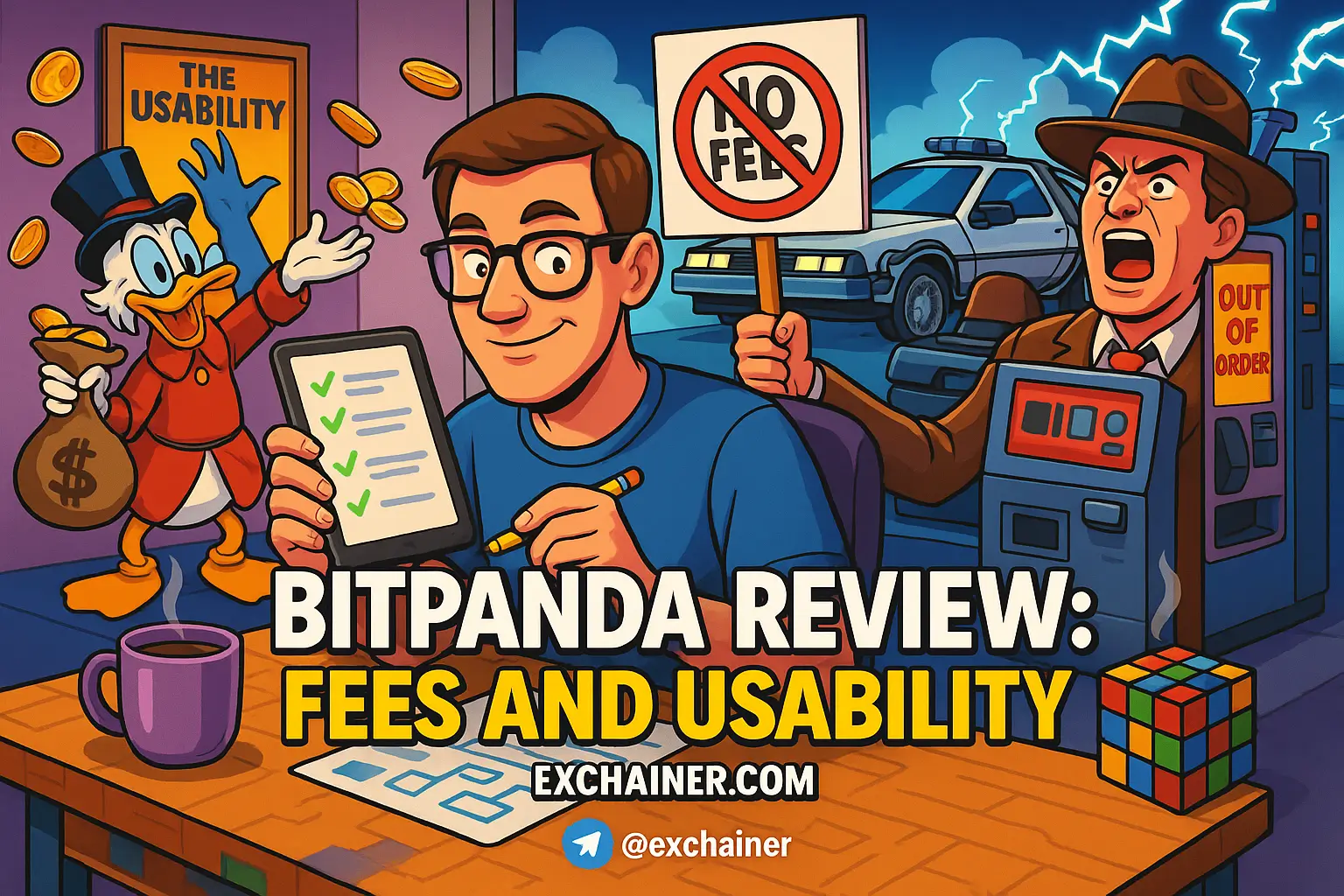Understanding the Buzz: What Is Market Speculation in Crypto?
Friends, if you've dipped your toes into the exciting world of digital currency, you might have encountered the term "market speculation." It pops up everywhere — in forums, news articles, and crypto chats. But what exactly does it mean? Why does it matter to your crypto journey? Market speculation is a fundamental concept that helps explain why cryptocurrency prices seem to soar one day and dive the next. At its core, speculation involves making educated guesses about the future price movements of an asset to turn a profit. In the cryptocurrency market, where things are notoriously volatile, speculation drives much of the action.
Understanding market speculation is key to becoming a savvy crypto trader or investor. It influences everything from how you approach buying your first Bitcoin to deciding when to sell your altcoins. This beginner guide will break down market speculation in crypto, clearing up confusion and shedding light on how this essential mechanism works behind the scenes. We'll also explore practical tips to help you navigate speculation wisely, avoiding common pitfalls.
So, whether you're just starting to explore cryptocurrency basics or you've already made a few trades, understanding market speculation will empower you to make smarter choices. Ready to dive in? Let’s unravel the mystery together.
What Is Market Speculation? A Simple Explanation
Market speculation refers to the act of buying and selling assets — like cryptocurrencies — based primarily on expectations about future price changes rather than the asset’s intrinsic value. Think about it like betting on which horse will win a race. You don’t own the horse, but you place your money on the one you think will cross the finish line first.
In crypto, speculators purchase coins or tokens hoping the price will rise so they can sell later at a profit. This contrasts with long-term investing, where buyers focus on an asset’s underlying technology or use case. Speculation thrives on volatility and uncertainty — which crypto markets have in abundance.
Let’s say Bitcoin is trading at $30,000. A speculator might predict that a big event like a regulatory announcement or a new partnership will push the price to $40,000 soon. They buy in, aiming to sell fast when the price spikes. This behavior can cause rapid price swings because speculation impacts demand and supply almost immediately.
Difference Between Speculation and Investment
While both involve money and assets, the key difference lies in the mindset and timeline. Investors in crypto often focus on the fundamental value – they look at the blockchain project’s vision, team, adoption, and technology. Speculators, on the other hand, focus on price movement patterns and market sentiment.
A popular quote sums it up well: “Investing is about patience, speculation is about guessing.” Knowing this helps you decide which approach fits your goals and risk tolerance.
How Market Speculation Impacts the Crypto Ecosystem
Market speculation plays a giant role in shaping the crypto landscape, often causing both excitement and fear among participants. Here’s how it impacts the ecosystem:
1. Drives Price Volatility. Cryptocurrencies are notorious for their wild price swings. Speculative trading, where people rush to buy or sell based on news or rumors, intensifies this volatility. While that can lead to big gains, it also increases risk.
2. Influences Market Trends. When a popular figure tweets about a cryptocurrency or a new tech update launches, speculators react fast. This collective reaction can create upward or downward price trends within hours or days.
3. Encourages Innovation and Adoption. Speculation can attract more people to the market, which means increased interest and funding. Some projects launch with speculative hype, then use that momentum to build real-world applications.
4. Raises Risk of Market Manipulation. The speculative nature of crypto also opens doors to market manipulation, like pump-and-dump schemes, where bad actors artificially inflate a token price to sell at a profit, leaving others with losses.
Example: How Speculation Fueled the 2017 Bull Run
Remember the famous 2017 crypto boom? Bitcoin hit nearly $20,000 for the first time, and altcoins like Ethereum, Ripple, and Litecoin saw astronomical gains. Much of this hype was powered by market speculation. Newcomers flooded the market, pumped by stories of overnight riches and FOMO (fear of missing out).
Speculators bought coins hoping to flip them at higher prices, creating a massive price bubble. When the bubble burst in early 2018, prices dropped sharply, leading to what’s now known as the "crypto winter." This episode perfectly illustrates both the opportunity and risks tied to speculation.
Key Strategies Used in Crypto Market Speculation
If you've ever wondered how experienced traders attempt to profit from market speculation, they generally use a few common strategies. Understanding these can help you shape your own approach, especially if you plan to trade actively.
1. Trend Following. This strategy involves identifying an upward or downward price trend and moving along with it. The logic is simple — if the price is rising, buy; if it’s falling, sell or short. Traders use charts and technical indicators like moving averages to spot trends.
2. Momentum Trading. Speculators look for assets with strong recent price movements, hoping the momentum will continue. They enter positions quickly, then exit as soon as signs of reversal appear. It requires close monitoring and quick decisions.
3. News-Based Speculation. Crypto markets are highly sensitive to news. Announcements like new partnerships, regulatory updates, exchange listings, or technological breakthroughs can cause sudden price changes. Some traders watch the news closely, jumping in or out to capitalize on these events.
4. Arbitrage. This involves buying a cryptocurrency on one exchange where it’s cheaper and selling it on another where the price is higher, earning a risk-free profit. Though more technical, it’s a form of speculation that leverages market inefficiencies.
5. Swing Trading. This strategy capitalizes on short to medium-term price swings. Traders hold assets for days or weeks, looking to profit from cyclical changes within the crypto market's broader ups and downs.
Practical Example of News-Based Speculation
Suppose a major country announces it will introduce favorable crypto regulations. Many speculators anticipate a bull run and buy Bitcoin. As the news spreads, more people buy, driving the price up. Those who bought early take profits, while later buyers may face losses if the price retracts. That's market speculation in action.
Practical Tips to Navigate Market Speculation Wisely
Speculation can look like a rollercoaster — thrilling but risky. If you want to participate without losing your shirt, here are some tips to keep your feet steady.
Start Small: Don’t throw all your funds into speculative bets. Allocate a small portion of your portfolio to active trading, while keeping long-term investments separate.
Use Stop-Loss Orders: Protect your downside by setting stop-loss orders that automatically sell your assets if prices drop below a certain level.
Stay Informed: Follow reliable news sources and communities, but be wary of hype and rumors. Check official websites and trusted platforms like CoinMarketCap for data.
Understand Market Sentiment: Pay attention to the mood of the market — whether traders feel greedy or fearful. Tools like the Fear & Greed Index can help gauge sentiment.
Diversify Your Trades: Don’t put all your eggs in one basket. Spread your speculative bets across different assets to reduce risk.
Have an Exit Plan: Decide in advance when to take profits or cut losses. Avoid chasing the market impulsively.
Remember, as Warren Buffett said, "Be fearful when others are greedy and greedy when others are fearful." That’s sage advice when markets look overheated.
Understanding Risks: Why Speculation Isn’t for Everyone
While market speculation can offer big rewards, it comes with significant risks that every crypto enthusiast should understand.
Volatility Risk: Crypto’s famous or infamous volatility means prices can change dramatically in minutes. Without experience, this can lead to emotional decisions and losses.
Liquidity Risk: Some cryptocurrencies have low trading volumes, making it hard to buy or sell without impacting the price.
Regulatory Risk: Crypto regulations are still evolving worldwide. New laws can drastically affect prices overnight.
Manipulation Risk: Smaller altcoins are targets for pump-and-dump scams, where bad actors manipulate prices for profit.
Psychological Stress: Speculation requires constant attention and can be emotionally draining, leading to burnout.
That’s why many beginners start by building a solid foundation through learning — understanding cryptocurrency basics and exploring investing before diving into risky speculation.
Conclusion: Embrace Market Speculation with Knowledge and Caution
Market speculation is at the heart of the cryptocurrency world, driving much of its excitement and turmoil. By grasping what speculation entails, you can better anticipate market moves and make smarter decisions like a pro. Remember, speculation is not about blindly chasing profits but about understanding market sentiment, events, and price patterns to inform your trades.
Always balance your speculative activities with sound investment principles, and use tools at your disposal to manage risks. The cryptocurrency market’s wild rides can be rewarding but require a clear head and a well-thought-out strategy.
If you enjoyed this walkthrough and want to deepen your knowledge, dive into more beginner-friendly guides over at Exchainer’s Crypto 101. Curious about which platforms to use for your trading adventures? Check out Exchange Reviews for insights. And when it’s time to secure your digital assets, our Tools and Wallets section will help you pick the right solution for your needs.
Ready to turn your curiosity into confidence? Let the world of crypto speculation become your playground — but always play smart.
For more in-depth information on terminology and market dynamics, resources like CoinMarketCap’s glossary offer great explanations you can bookmark and revisit anytime. Happy trading, friends!












